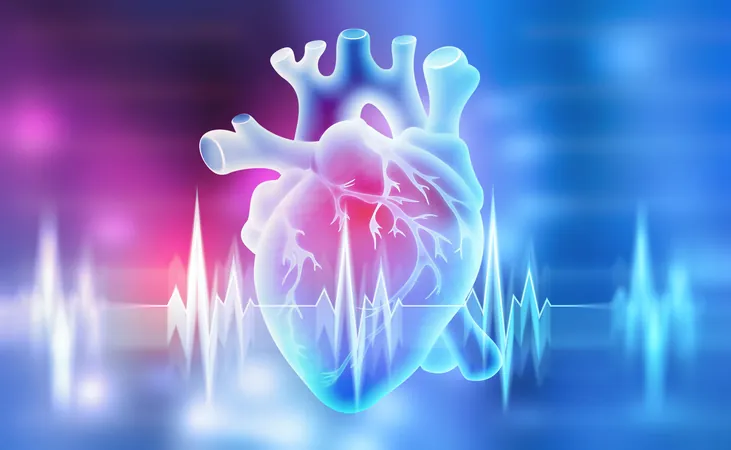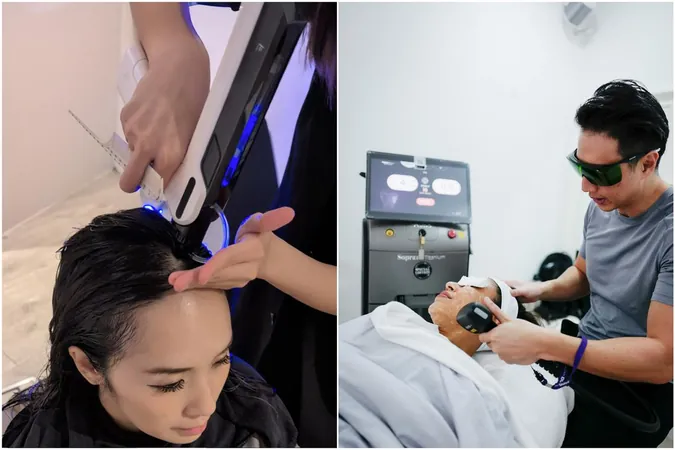
Breakthrough "Brain Cleaning" Technique Revitalizes Memory in Aging Mice – A New Hope for Cognitive Decline!
2025-03-29
Author: Yu
Introduction
In a groundbreaking discovery, researchers at Washington University School of Medicine in St. Louis have developed a revolutionary technique to enhance memory by accelerating the brain's waste removal system. This innovative research, recently published in the prestigious journal *Cell*, reveals the potential of enhancing the brain's natural cleansing process to combat memory decline in older mice.
Background
Around ten years ago, scientists uncovered that the brain’s cleansing mechanism, the meningeal lymphatics— a network of vessels encasing the brain— begins to falter as we age. This system is vital for draining waste and excess fluids into the lymph nodes, where immune cells vigilantly check for diseases or infections. However, as the aging process impairs this function, the brain’s own immune cells, known as microglia, are forced to step in, which can lead to cognitive strain and overwhelm.
Research Findings
By honing in on the meningeal lymphatics, the researchers see immense potential in overcoming obstacles faced by other therapies targeting age-related cognitive decline and neurodegenerative diseases like Alzheimer’s and Parkinson’s. This approach sidesteps the blood-brain barrier, a significant challenge for many neurological treatments, by focusing on areas outside the brain.
Professor Jonathan Kipnis, an expert in pathology and immunology at Washington University, emphasized the importance of this approach, stating, “The physical blood-brain barrier hinders the efficacy of therapies for neurological disorders. By targeting a network of vessels outside the brain that is critical for brain health, we are witnessing cognitive improvements in mice, paving the way for more potent therapies aimed at delaying cognitive decline.”
Experimental Design
In their experiment, the researchers placed two identical black rods within a cage for the older mice to explore. The next day, the mice received one of the black rods and were presented with a shiny new rectangular prism. The hypothesis was that older mice would show limited interest in the new object, unlike their younger counterparts, who generally exhibit curiosity toward novel items.
Results
Following a treatment designed to stimulate the growth and functionality of the lymphatic vessels in some of the older mice, the results were astounding. Those that received the enhancements spent significantly more time engaging with the shiny new object, indicating a remarkable improvement in memory compared to untreated older mice.
Implications
Kyungdeok Kim, the first author and postdoctoral fellow, remarked, “A functioning lymphatic system is critical for brain health and memory. Therapies that support the health of the body’s waste management system could yield substantial benefits for an aging brain.”
Interestingly, the treatment appeared to reduce levels of interleukin 6 (IL-6), an immune protein linked to detrimental effects on brain health, thus showcasing multiple layers of improvement.
Future Directions
While extensive research remains before these findings can be applied to human subjects, the scientific community is teeming with optimism. Kipnis proposes, “Targeting the more readily accessible lymphatic vessels outside the brain might represent an exciting new frontier in treating brain disorders. While we might not revive aging neurons, we can strive to optimize their function through the modulation of meningeal lymphatic vessels.”
Conclusion
This pioneering study opens the doors to novel therapeutic strategies that could change the landscape of how we approach memory decline and neurodegenerative diseases. Stay tuned as we continue to follow the developments in this promising field!


 Brasil (PT)
Brasil (PT)
 Canada (EN)
Canada (EN)
 Chile (ES)
Chile (ES)
 Česko (CS)
Česko (CS)
 대한민국 (KO)
대한민국 (KO)
 España (ES)
España (ES)
 France (FR)
France (FR)
 Hong Kong (EN)
Hong Kong (EN)
 Italia (IT)
Italia (IT)
 日本 (JA)
日本 (JA)
 Magyarország (HU)
Magyarország (HU)
 Norge (NO)
Norge (NO)
 Polska (PL)
Polska (PL)
 Schweiz (DE)
Schweiz (DE)
 Singapore (EN)
Singapore (EN)
 Sverige (SV)
Sverige (SV)
 Suomi (FI)
Suomi (FI)
 Türkiye (TR)
Türkiye (TR)
 الإمارات العربية المتحدة (AR)
الإمارات العربية المتحدة (AR)